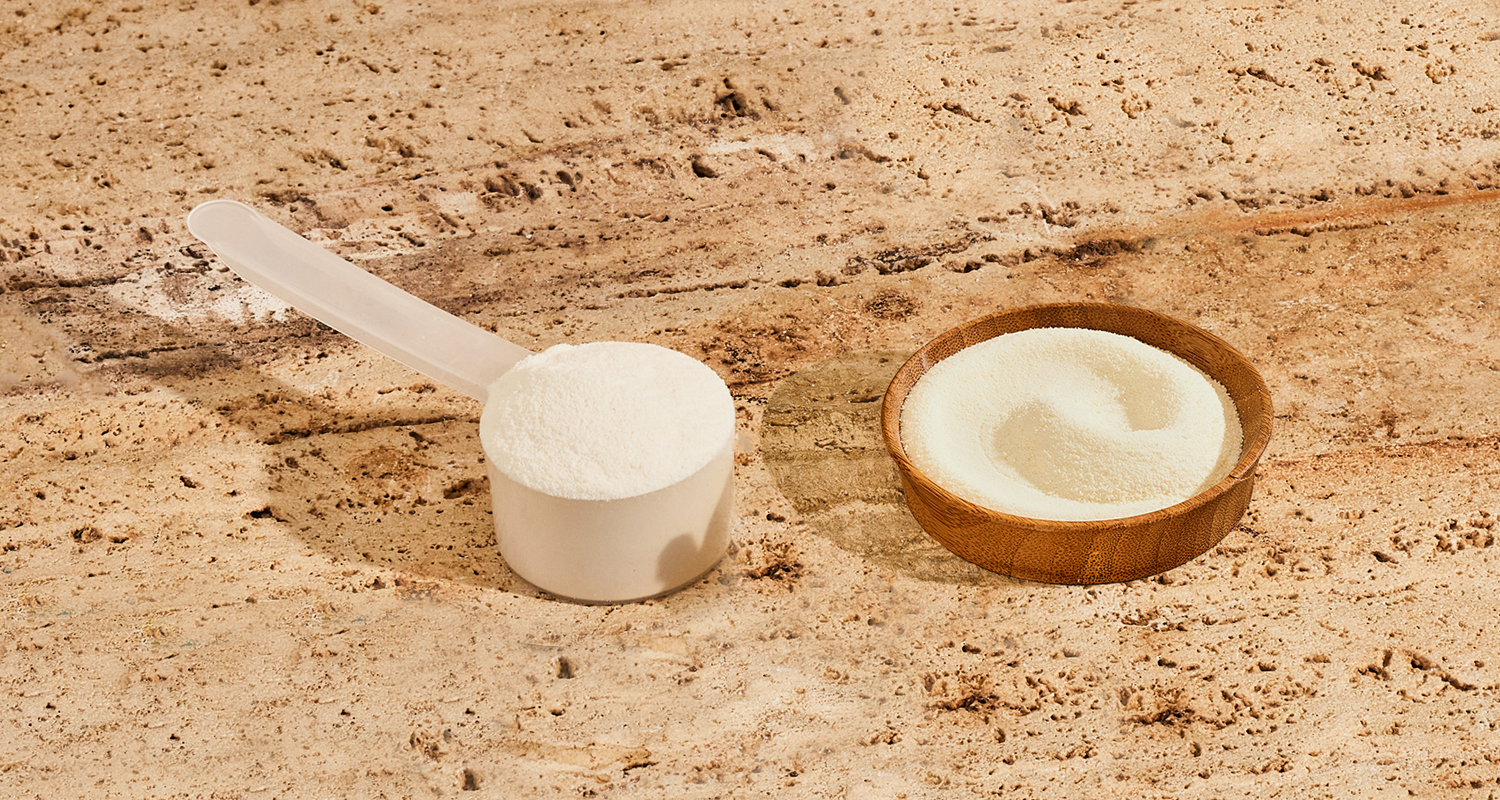Could there be mycotoxins in your coffee? The short answer is yes.
We see a lot of mold-related illness in our functional medicine practice, and while environmental mold in the home or workplace is the first place we look, many patients are also experiencing a buildup of mold toxins from other sources, like diet.
Coffee is one of the biggest food sources of mycotoxins (toxins produced by mold). And while you’re probably not going to get sick from drinking a single cup of coffee, it’s the accumulation and toxic load over time that’s important to consider.
Our bodies are all different. Some people might drink regular coffee for their whole lives without issue. Others are more sensitive to mycotoxins, or have a more limited capacity for detox from everyday sources of toxins in general. Especially for those with autoimmunity, gut imbalances, or certain genetic variants, for example, it’s better to be safe. If we can avoid extra toxins, we should.
On the plus side, this doesn’t mean you actually have to avoid all coffee. There are high quality, mold-tested options available, and several other things you can do to mitigate the risk of mycotoxin buildup from coffee, while still enjoying your daily brew.
Here’s what you need to know.
How Mold Grows In Coffee
Not all mold in food is visible, or a sign that it’s spoiled. Mycotoxins have been shown to be hiding out in various foods including rice, nuts, corn, dried fruit, alcohol, and, yes, coffee. (1)
Coffee is one of the most likely foods to contain mycotoxins. (2) Coffee beans naturally contain water, and are often grown in wet climates. Mold can grow in coffee beans throughout various stages of processing, storage, shipping, and even during the roasting process.
Roasting is also thought to destroy a significant amount of the mold that may be present in coffee beans – but not all of it. For example, one study found that around a third of coffees still contained ochratoxin A (OTA) after roasting. (3)
Ochratoxin A and aflatoxin B1 are the two most prevalent and problematic types of mycotoxins found in coffee.
What Are Mycotoxins?
Mycotoxins are toxins that are produced by certain types of mold (not all kinds of mold produce mycotoxins). It’s these toxins that are responsible for many of the health problems people experience related to mold.
Mycotoxins have been shown to contribute to inflammation and cause or exacerbate several different kinds of serious health issues.
Why It Matters
The amount of mycotoxins found in coffee is usually pretty small – small enough for many people to argue that it doesn’t matter at all. But when you look at the bigger picture, it does matter. Why? Because we’re exposed to “tiny” or “miniscule” amounts of toxins from innumerable sources every single day.
Molds that produce mycotoxins can hide in various places, from pipes and cars to essential oil diffusers and cutting boards. Not to mention all of the other kinds of toxins we’re exposed to in the air, our cleaning products, our self-care products, and our food supply.
So while we can’t avoid all of these sources of toxins (nor do we want to drive ourselves crazy with constant worry), knowing where we can reduce our load is important.
A buildup of mycotoxins can lead to chronic fatigue, brain fog, headaches, digestive issues, difficulty concentrating, and other symptoms that many people unfortunately experience for years before somebody is able to identify the problem. Eventually, they can cause significant damage to the immune system and the body overall.
Again, it’s important to keep in mind that not everyone is affected by mycotoxins in the same way. A few things that can make it more difficult to detox from mold toxins include methylation impairments, autoimmunity, and gut issues.
LISTEN: Best (+ Worst) Coffee Options, Food Deserts, Carnivore Diet & Autoimmunity (Ask Me Anything Episode!) | Dr. Will Cole
How To Avoid Coffee Mycotoxins
If you’re a coffee drinker, there are several things you can do to avoid coffee mycotoxins and still enjoy your morning cup (or two).
It’s also important to keep in mind that coffee offers a lot of health benefits! Coffee contains potent antioxidants and has been shown to help decrease inflammation, improve cognitive function, protect against disease, and even increase longevity. (4)
So here’s how you can take advantage of all of the pros of coffee consumption while also mitigating your risk of toxin buildup.
Choose Mold-Free Coffee Brands
Not all coffee is created equally. Choose a high quality, organic coffee brand that tests for mold. A couple of great options include Bulletproof Coffee and Purity Coffee. If you want more inspiration, check out this collection of some of the teas and coffees our whole office loves!
These higher quality coffees are better choices for many reasons – in addition to their testing for mycotoxins, you’ll know you’re not consuming herbicides, pesticides, or other chemicals.
Try Coffee Grown at High Altitudes
In addition to looking for terms like “organic” and “mold-free” when you’re shopping for coffee, consider choosing coffee that has been grown at a higher altitude. Higher altitudes generally mean drier conditions, which may mean a lower likelihood of mold growth.
Store Your Coffee Properly
Good quality brands will take care to keep mycotoxins out of your coffee, but once it reaches your kitchen, it’s in your hands. Proper storage in an airtight container, away from moisture, heat, or too much light, can help to discourage any later stage mold growth.
Clean Your Coffee Maker
Coffee makers can be excellent breeding grounds for mold if left to accumulate moisture for too long. Depending on the type of coffee making equipment you use, you may want to clean it on a daily basis, weekly, or thoroughly every month to keep mold opportunities to a minimum.
Ditch the Sugar
One of the many reasons I would recommend avoiding sugar in your coffee (and in general) is that molds and yeasts love to feed off of it.
Be Cautious With Decaf + Instant Coffee
Decaf coffee is actually more likely to contain mycotoxins than caffeinated coffee, because caffeine can help to stop mold growth. Instant coffee is also more likely to contain higher levels of mycotoxins.
Ask At Your Coffee Shop
If you drink most of your coffee at home and only visit coffee shops every once in a while, you probably don’t need to worry too much about the occasional cup that may or may not be mold-free. But if you’re drinking coffee out all the time, you may want to ask your barista for more information about the brew you’re getting. Generally speaking, more specialized local coffee shops are probably more likely to be sourcing higher quality, organic roasts than most big chains.
Support Your Body’s Detox Capabilities
Reducing or preventing toxin overload requires two main things: limiting toxin exposure, and supporting the body’s ability to detoxify. There are several holistic practices and strategies you can follow to detoxify from mold and support the natural detox process, including eating plenty of leafy greens, wild-caught fatty fish, and healthy fats, regularly sweating, and supporting the liver with high quality supplements.
Symptoms To Watch For
Symptoms of mold toxicity or mycotoxin-related illness vary, and can be challenging to pinpoint as they mirror symptoms of many other kinds of conditions. But if you’re experiencing any of these symptoms and haven’t been able to find an explanation, it’s worth speaking with a functional medicine practitioner who can help you figure out if mycotoxins might be part of the problem.
Signs and symptoms may include:
Fatigue
Brain fog
Wheezing, coughing, or shortness of breath
Respiratory infections or dysfunction
Chronic inflammation
Mood dysregulation
Trouble sleeping
Difficulty concentrating or memory problems
Skin issues including rashes or itchiness
Digestive concerns including nausea, abdominal pain, or diarrhea
Immune system dysregulation
Mast Cell Activation Syndrome (MCAS)
READ NEXT: The #1 Diet For Autoimmunity + What To Do If It Doesn’t Work, According To A Functional Medicine Expert
Restore Your Health Naturally
At our functional medicine telehealth clinic, we work with patients affected by mold toxicity every single day. We can help you put the pieces of your health puzzle together, clear out toxins that may be keeping you from feeling your best, and bring you back to wellness.
As one of the first functional medicine telehealth clinics in the world, we provide webcam health consultations for people around the globe.




